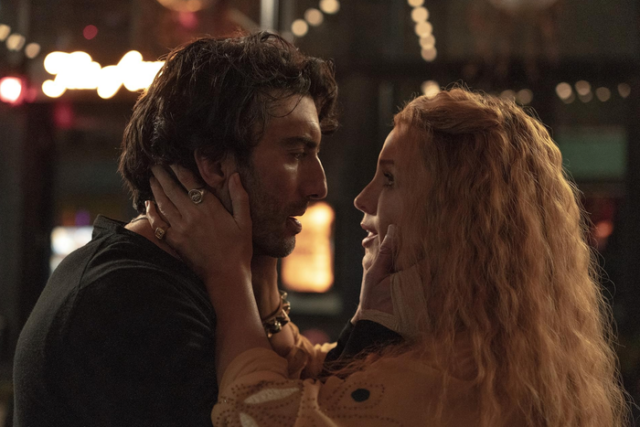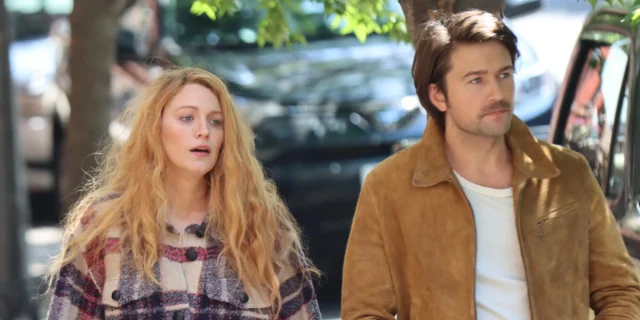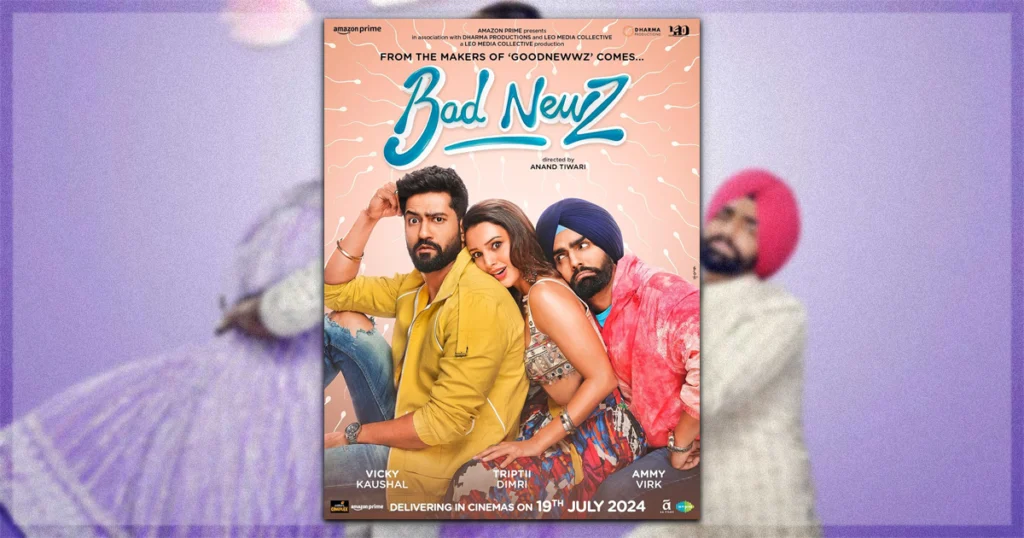I’ve avoided reading Colleen Hoover’s It Ends With Us for years now. As an avid reader who is also constantly on social media, the novels of Colleen Hoover have been plastered all over TikTok and Instagram, none with such veracity as It Ends With Us and its sequel, It Begins With Us. While I love seeing so many sharing their enjoyment of reading, especially with books that seem to transcend populations of all types, one word kept coming up for this novel that stopped me from picking it up: domestic violence.
Not that there shouldn’t be books that explore topics such as that, but you have to be in the right mindset to handle them. They aren’t always easy to get through, even more so if you’ve been or are still in a relationship where those dynamics are present. So I avoided it. When the invite came in to see this film, I went back and forth for weeks, debating if I wanted to attend, but finally decided to bite the bullet and see the Blake Lively-led film.
What I wasn’t expecting was a beautiful film that not only explores the darker side to relationships but how generational trauma impacts people in both conscious and unconscious ways. Directed by Justin Baldoni, who also stars in the film alongside Lively and written by Cristy Hall (DADDIO, I Am Not Okay With This), This Ends With Us is one of the most important films of 2024. Should you go and see this one in theaters? Continue on to find out why this film is a must-see in theaters.
[Warning: this article discusses topics of domestic abuse and sexual assault. If you are experiencing domestic violence and looking for help, please check out the National Domestic Violence Hotline. For help with SA, please check out RAINN. Spoilers from It Ends With Us are below!]
Lily Bloom’s past comes to haunt her in this Sony Pictures film
Told in two different periods, It Ends With Us follows Lily Bloom (Lively) in different stages of her life in a narrative that explores the impact of generational trauma. When we first meet Lily, it’s in the present day on one of the most significant days of her entire life, her father’s funeral. As the mayor of her hometown, Andrew Bloom (Kevin McKidd) was beloved by so many. However, Lily finds it difficult to love her father because of the horrible stuff he’s done. Unable to think of anything nice to say, she flees the funeral, returning to Boston and her life.
Life in the big city provides an escape from the dark side of domestication of her childhood home and presents a place where Lily can achieve anything. Giving up her corporate job, Lily decides to open a floral shop, which is inevitable with a last name like Bloom and a first name of Lily. She’s making friends with Allysa (Jenny Slate), a girl who stumbles into her shop looking for a job to occupy some time. And of course, there’s Ryle, Allysa’s brother.
Lily doesn’t know Allysa and Ryle are related when she first meets him, in fact, the two meet in incredibly awkward circumstances. On the eve of her father’s funeral, Lily breaks into an apartment building to sit on the roof’s edge, hoping to find some peace and quiet. In stumbles an angry Ryle, a neurosurgeon who just lost a young client. The two bond through sharing naked truths, and they part, not expecting ever to see each other again.

I suppose that becomes complicated when he’s your best friend’s brother, and there’s an undeniable attraction between them. That being said, Lily and Ryle want two separate things in life; the former wants a relationship and family, and the latter wants to fuck his way through as many people as possible. And yet, they continue to circle each other as the sexual tension builds to the point of no return.
It’s not until the two are in a relationship and get married that things turn for the worse. It’s a fairytale until that moment, but over time, “accidents” happen slowly as Ryle’s temper grows. As the story unfolds and Ryle’s dark past comes to life, Lily’s relationship with her husband begins to mirror that of her parents, a cycle that she never wished to repeat. The situation becomes more complicated with the reappearance of Atlas (Brandon Sklenar), a guy from her past that she can’t seem to get over. As the tension ratchets to all-time highs, Lily must make a decision. Continue the cycle of abuse or start over without much support. What she chooses and why is the emotional pinnacle of this film and one of the main reasons to see It Ends with Us.
An all-important story unfolds in This Ends With Us
While this film is ultimately a love story, what sets it apart from others in the genre is the exploration of generational trauma and escaping the cycle. We are a product of the environment in which we are raised, for both the good and the bad. Remember the saying, “Those who are bullied, bully others”? That idea applies to generational trauma, specifically when we discuss the impact of abuse. At times, without the proper help and healing, if we witness ongoing abuse or are on the receiving end, people can believe it’s what they deserve. It’s also possible that those who are abused turn around and continue that cycle by abusing another.
Lily’s acceptance of abuse comes from her father, who mercilessly beats her mother frequently throughout her childhood. We don’t see any generations past her father, but one can extrapolate that the cycle of abuse didn’t begin with Andrew but extends further past him. However, this verbal and physical abuse becomes the norm for Lily; she’s never known life without that. So, when the abuse begins with Ryle, she quickly writes it off because she doesn’t know any better.
It Ends With Us shows this in an interesting way, as each incident initially appears as an accident until the end when she begins to reflect on her relationship. At first, I worried that we wouldn’t see the truth behind the incidents, which could be damaging for anyone in an abusive relationship watching the film. “If Lily can write it off as an accident, then my husband didn’t really mean to hurt me.” I could hear that line play in my head as if a client was sitting before me.

That alone could have been damaging; however, it made perfect sense by the end of the film. It Ends With Us views the world through the lens of Lily, who accepts that the man who loves her would never hurt her because that is the same narrative she heard from her mother (Amy Morton). It’s not until she can stand back from the disaster and properly assess the damage that she realizes the truth; in that realization, the audience sees it, too.
I’ve never quite seen a film that captures what it’s like in the mind of those being abused quite like this film. Many films that explore this topic look at it through the lens of an outside observer, which neglects the turmoil in the heads of those on the receiving end. I’ve worked for almost a decade as a couple’s counselor and have spoken to many people who have been abused by a partner or are still in a relationship like that. The back and forth, the extremes of the emotions, but most importantly, the excuses for their partner’s behavior and the misremembering of the actual events are a significant part of these conversations.
It Ends With Us is breaking box office records and barriers
It Ends With Us takes an authentic experience that so many people will encounter in their lives and gives those people a voice. It sounds dramatic, but this film will be the moment that some viewers have a big realization about their relationships. I think It Ends With Us could save lives, as people who feel trapped in their current life situation will know that there is life outside of the abuse.
This film is raw and real, which is why it’s so beautiful. The work of everyone involved in the film is absolutely incredible, and even if it saves only a single life, it’s done work to understand those who are victims and let them know they have strength, even if they don’t feel it in this moment.
It Ends with Us is currently playing in theaters.
You might also like…


